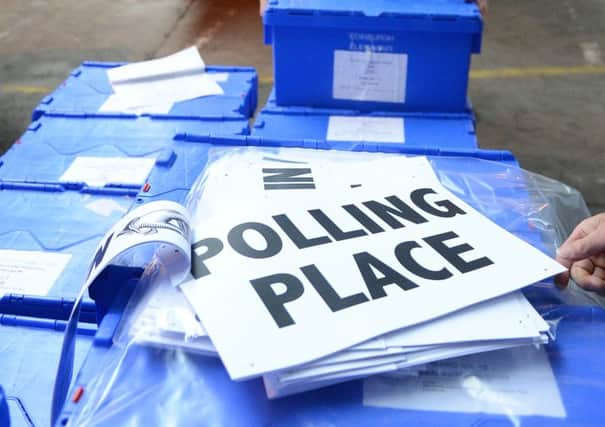Independence: Yes backers ‘more likely to vote’


The study of turnout and voting intentions by social research institute ScotCen found that turnout for the September ballot could be somewhere between 70 and 80 per cent.
The research found that confirmed Yes supporters are slightly more likely to say they will make it to the polls.
Advertisement
Hide AdAdvertisement
Hide AdIn the study, 90 per cent of those who back the Yes campaign are more than 50 per cent likely to vote in September’s poll, as opposed to 86 per cent of No backers.
When undecided voters are added, the turnout margin grows to 90-83.
Background, reaction
ScotCen used data from the 2013 Scottish Social Attitudes survey, which questioned 1,497 people between June and October 2013.
Looking at only undecided voters - who represent around a third of those surveyed - 91 per cent of those leaning towards Yes are more likely to vote than not, compared with 73 per cent leaning towards No.
ScotCen’s analysis says: “If we take into account each Yes and No respondent’s reported probability of voting, it is enough to add two points to the Yes side’s estimated share of the vote.”
Dr Jan Eichhorn, research fellow at Edinburgh University, who compiled the data, said: “While the overall turnout in the referendum is expected to be high, around 70 - 80 per cent, there could still be a higher turnout amongst Yes than amongst No supporters. In a tight race, this could be crucial.”
John Curtice, research consultant at ScotCen, said: “The proportion of those who say they are likely to vote has increased as the campaigns have developed.
“Far from putting people off, the campaigns are resonating with the public. But both campaigns evidently still need to make sure their supporters participate in the referendum come polling day.”
Advertisement
Hide AdAdvertisement
Hide AdYes Scotland chief executive Blair Jenkins said: “This suggests that more and more people are listening to the real facts and figures instead of ‘Project Fear’ scaremongering, they realise that, of the two futures facing their country, they are more likely to come out and vote for independence.”